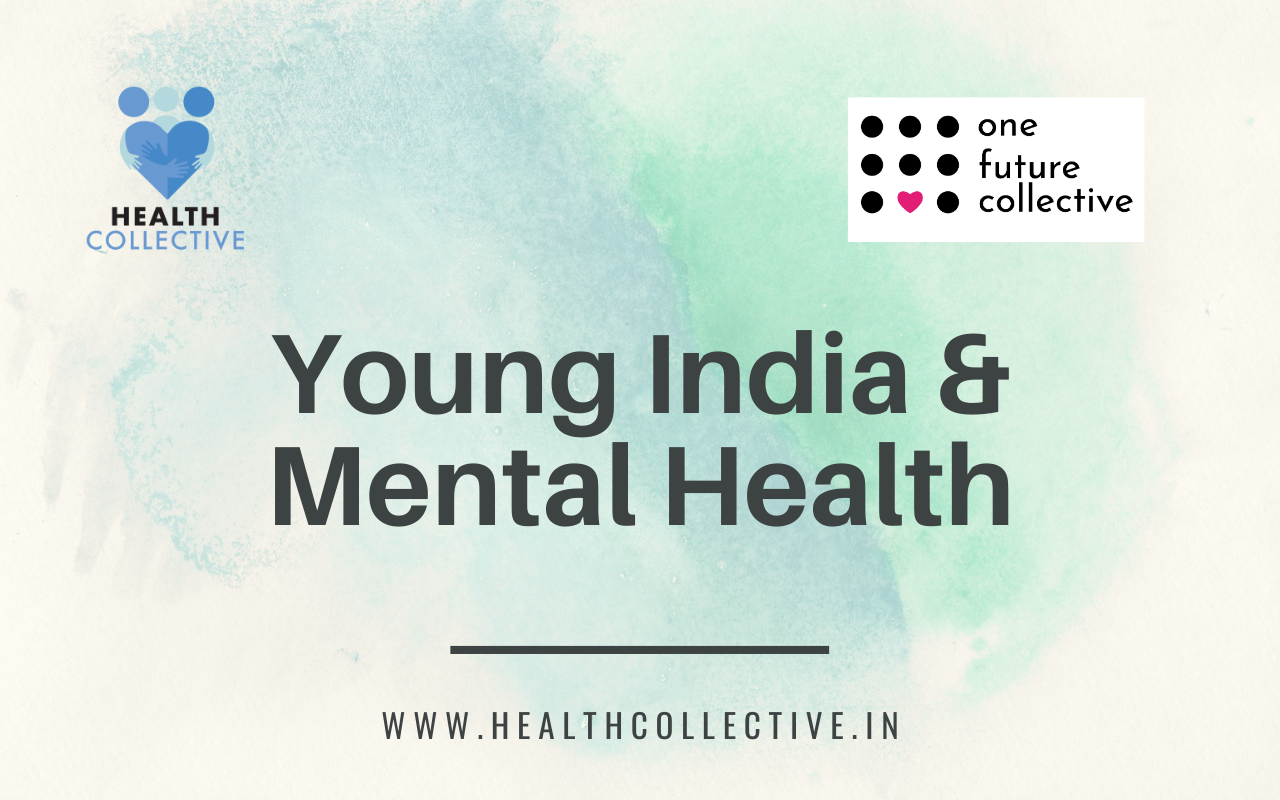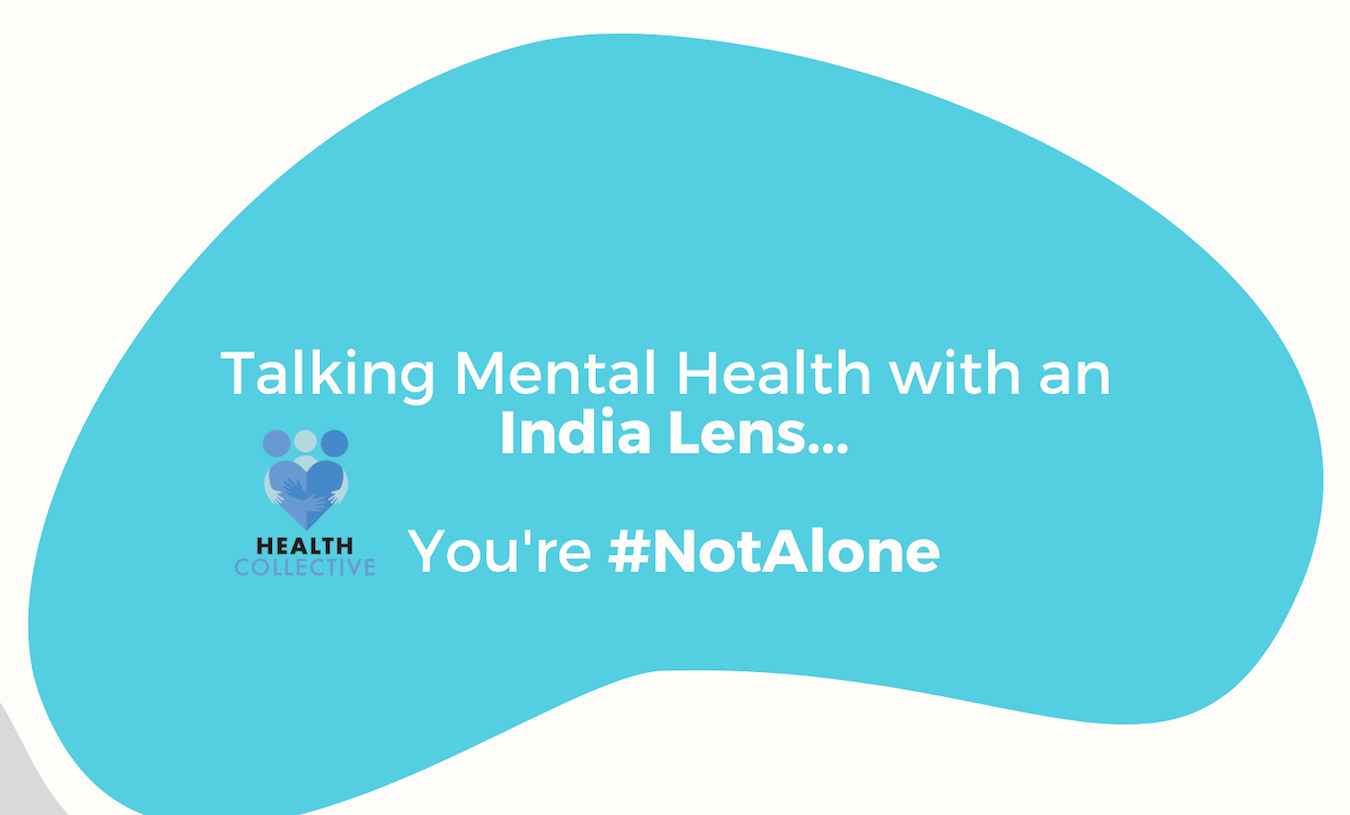Superstition, Stigma and the Mental Health Crisis
By Komal Patil | One Future Collective
This column is brought to you in association with One Future Collective x The Health Collective
Conversations on mental health are resurfacing in light of the COVID-19 pandemic in certain sections of society, but there is a mental health crisis that has been looming for quite some time. Are we paying enough attention?
According to the National Mental Health Survey, commissioned by the health ministry and conducted by NIMHANS, between 2014 and 2016, 0.6 percent of Indian adults—nearly 150 million people—suffered from a mental-health disorder, and estimated that 83 percent of people with such disorders did not receive treatment. The lack of treatment options, concerns about affordability and widespread lack of awareness is taking the country towards a (largely silent) collective mental health breakdown.
According to the WHO’s 2017 Mental Health Atlas, mental health made up just 1.3 percent of the government’s total health expenditure—amounting to four rupees per citizen. India had 1.93 mental-health workers for every 100,000 people. (The global average is nine, while higher-income countries average close to seventy, with some countries having as many as four hundred.) Counting both the public and private sectors, there were just 25,312 mental-health professionals in India. There were fewer than four thousand psychiatrists in the country, and the total number of child psychiatrists was 49.
‘Mind the Treatment Gap’, by Kiran Dhillon in Caravan Magazine
Such shortage is not restricted to tier-2 and tier-3 towns and cities. In Mumbai, India’s sprawling financial capital the situation looks no different. Dr Devraj Sinha, the HOD and the only permanent doctor in the Mental Health department at Cooper Hospital, Mumbai is reportedly occupied dealing with 80-100 patients in a span of 4-5 hours, according to this report in the Hindu Businessline.
Dr Shyam Ravilla, a psychiatrist at The Banyan, a leading non-governmental organisation based in Chennai is quoted in The Caravan as saying, “On average, in a four-hour period, I see between 25 and 50 patients on an outpatient day, I can usually spend five minutes with each patient, otherwise I wouldn’t be able to get to everyone.”
And there’s often a long wait to even get a coveted slot for appointments. Pragya Lodha, Programme Director of Mental health at One Future Collective tells The Health Collective, “It is common (for) therapists (to) also have waiting periods for new appointments, sometimes even up to 1-3 months.”
According to analysis1 reported in the Indian Journal of Psychiatry in 2019 India has 0.75 psychiatrist for 100,000 persons and the treatment gap estimates that only 1 person out of every 10 people who need mental health support, gets it.
So who fills in the gaps?
THE PITFALLS: SUPERSTITION AND ‘FAITH’ HEALING
One of the repercussions of a broken mental healthcare system is the rise of pseudo-scientific, even superstitious cures. Stigma around mental illness persists as a result of the lack of awareness, education and amplification of mental health as part of our daily narrative; compounded by an infodemic of misinformation and prevailing myths. Stigma and taboo continue to percolate through society, which further reduces access to credible information and vulnerability to quacks or faith healers, charlatans offering quick and easy remeedies, with various supposed Babas or even supposed black magic practitioners claiming to cure epilepsy, depression and schizophrenia within a span of a few visits. People are gullible because they are unaware about mental illnesses and the associated symptoms. This unawareness and superstitious remedies makes women and children more vulnerable. To cite a few media reports, a 16-year-old girl in Hyderabad who was showing signs of mental illness,was taken to a black magic practitioner who sexually abused the minor; a 26-year old woman was sexually assaulted when she was forced to undergo exorcism to supposedly ‘cure’ her depression. In a rural area of Tamil Nadu, a woman who was thought to be possessed with evil spirits was thrown out of the house by her father. She was later diagnosed with schizophrenia.
Pragya Lodha shares, “Superstition is a part of people’s belief systems, in a country like ours. Eradicating people’s belief does not help change minds, the need of the hour is liasoning. Faith healers and menta health professionals can work in tandem where the patient gets the needed medical / therapeutic help as well as the support of their faith.”
While turning to superstitions may bring some people some sort of temporary relief that they are ‘doing something’, the underlying mental illnesses remain untreated. Studies3 reveal that 45%of psychiatric patients have sought about 1–15 sessions with folk healers in South India and nearly about 40% of patients consult faith healers in Northern India before resorting to psychiatric care.
THE COVID-19 PANDEMIC AND MENTAL HEALTH
The stigma associated with mental health topics combined with lack of facilities and knowledge has perpetuated many problems including gendered violence. Especially, in the pandemic, women are reportedly three times more likely to experience stress and mental health distressors.
A recently concluded systematic review and meta-analysis published in the Indian Journal of Psychiatry2 on the prevalence of psychological morbidities among the general population, health-care workers, and COVID-19 patients amidst the COVID-19 pandemic reported that about half of the population faced psychological impacts of the COVID-19 pandemic. “Poor sleep quality (40%), stress (34%), and psychological distress (34%) were the most commonly reported problems across various studies. An online Indian survey has reported that about 40.5% of the participants reported anxiety or depressive symptoms. About three-fourth (74.1%) of the participants reported a moderate level of stress, and 71.7% reported poor well-being.“
It is therefore incredibly important to address the stigma while combating lack of awareness, but equally imperative to push for capacity-building of infrastructure, an increase in trained mental health practitioners, while uprooting prevalent patriarchy and superstitions in our society.
Views expressed are personal. Do share your comments with us.
SOURCES:
- (Garg K, Kumar CN, Chandra PS. Number of psychiatrists in India: Baby steps forward, but a long way to go. Indian J Psychiatry. 2019;61(1):104-105. doi:10.4103/psychiatry.IndianJPsychiatry_7_18)
2. (Dalal P K, Roy D, Choudhary P, Kar SK, Tripathi A. Emerging mental health issues during the COVID-19 pandemic: An Indian perspective. Indian J Psychiatry [serial online] 2020 [cited 2021 Jun 2];62, Suppl S3:354-64. Available from: https://www.indianjpsychiatry.org/text.asp?2020/62/9/354/296512)
3. (Biswal, Ramakrishna & Subudhi, Chittaranjan & Acharya, SanjayKumar. (2017). Healers and healing practices of mental illness in India: The role of proposed eclectic healing model. Journal of Health Research and Reviews. 4. 89. 10.4103/jhrr.jhrr_64_17.)
ALSO READ
- Unearthed: A Powerful Memoir of Trauma, Truth, and the Journey to Healing
- My Take: Mental Health Podcasts That Resonate
- How to Fail by Elizabeth Day: A Raw, Relatable Look at Fertility, Feminism, and Failing Forward
- Relationships: It’s Not Always Simple
- How to Help Someone with Depression (Even When They Push You Away)




